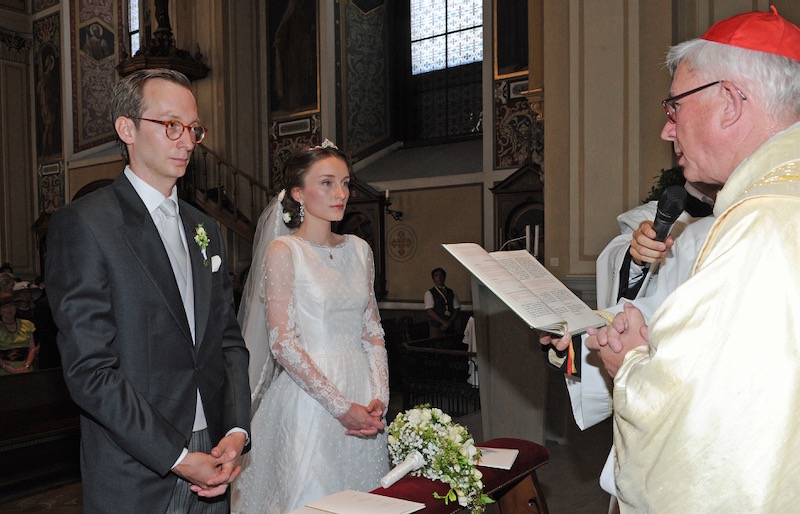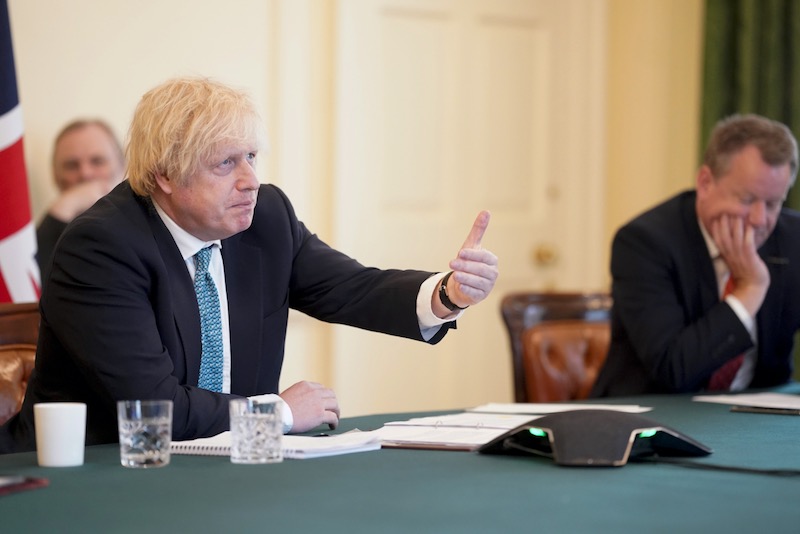Faith-based aid agencies, including Cafod, have condemned the government's decision to merge the Department for International Development with the Foreign and Commonwealth Office.
Prime Minister Boris Johnson, announcing the merger, said: “Distinctions between diplomacy and overseas development are artificial and outdated.”
In a joint statement, the leaders of some of the nation's top aid charities accused the government of making a “poitical move” and warned: “The world’s most vulnerable people will pay the highest price.”
The signatories included Alistair Dutton, chief executive of Scottish Catholic International Aid Fund, Amanda Khozi Mukwashi, chief executive of Christian Aid, Christine Allen, director of Cafod, Mark Sheard, chief executive of World Vision UK, Nigel Harris, chief executive of Tearfund, Peter Waddup, chief executive of The Leprosy Mission and Tufail Hussain, director of Islamic Relief UK.
They said: “A global pandemic the likes of which we’ve not seen in our lifetime is tearing through the world’s poorest communities, threatening to reverse decades of development gains. UK Aid is more critical than ever, and it’s essential to ensure the focus remains on fighting poverty and reaching those in greatest need.
“The Prime Minister has made clear his intention to use aid to further Britain’s national interests – a clear violation of the primary purpose of aid which is to alleviate poverty. This will blunt the impact of aid on those most in need, and risks more people suffering and dying as a result.
“As people of faith and leaders of organisations which seek to lift up the hungry, the poor and the oppressed, we stand against this act of injustice. We have a moral and ethical duty to neighbours near and far. History will not look kindly on the UK’s retreat into narrow self-interest.”
In a separate statement, Christine Allen accused the Prime Minister of maximising British influence through aid which she said was “seriously misguided”.
She said: “We believe the aid budget’s sole focus should be on helping the world’s poorest people, and that is how Britain will get the respect of other countries and their people.
“Our support for our brothers and sisters living in poverty shouldn’t be contingent on what we as Britain can get out of it – we must have a clear distinction between our aid budget and money spent on British interests.
“The last few weeks have reminded us of the debt that Britain owes to many countries and communities, and our aid spending is one way we can help to support those communities as they tackle the effects of climate change, poverty and human rights abuses. Our support for our brothers and sisters living in poverty shouldn’t be contingent on what we as Britain can get out of it.”
Daniel Willis, campaign manager for Global Justice Now said: “This is a terrible decision that takes us back two decades to when UK aid was subservient to the interests of British business. It's bad news for the fight against global poverty, and good news for suppliers of corporate drinks parties in foreign embassies.
“No-one who believes that UK aid can have a positive impact in the world thinks this is a good idea. Just last week, MPs urged the government to abandon this merger on the grounds that it would destroy the effectiveness and transparency of UK aid.
“This merger signals a conscious shift to a development model based on a hollowed out state that is forced to rely on corporate partners to function at home and abroad. DFID has been far from perfect, but its formal independence from the Foreign Office has offered some protection from aid money being treated as a slush fund for business interests. Now that's been swept away – Empire 2.0 here we come.”
Patrick Watt, Christian Aid's director of policy, public affairs and campaigns said: “Today's announcement is an act of political vandalism. Stripping the Department for International Development of its independence and folding it into the Foreign and Commonwealth office threatens a double whammy to people in poverty, and to our standing in the world.
“The timing couldn't be worse for people living in poverty, when for the first time in a generation, Covid-19 is driving a dramatic increase in extreme poverty. Far from being a symbol of ‘global Britain’, this move risks making Britain more parochial, and weakening its credibility in the rest of the world.
“Without an independent DFID the UK's ability to help tackle poverty, and the impacts of the climate crisis and conflict, will be reduced.”
He concluded with a recent comment from the chair of Christian Aid, Dr Rowan Williams: “We need an intelligent and independent Department of International Development embedded in a government that thinks about long-term global stability. There is not much point in a development programme that co-exists – for example – with selling arms to states pursuing aggressive and brutalising wars with their neighbours.”



 Loading ...
Loading ...